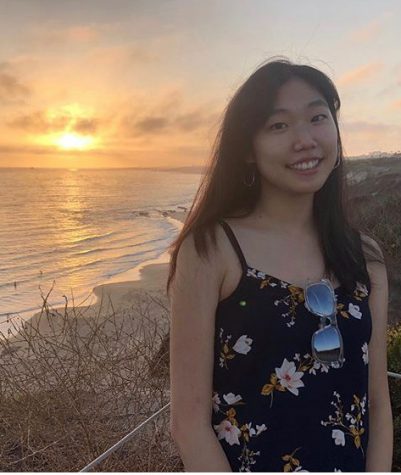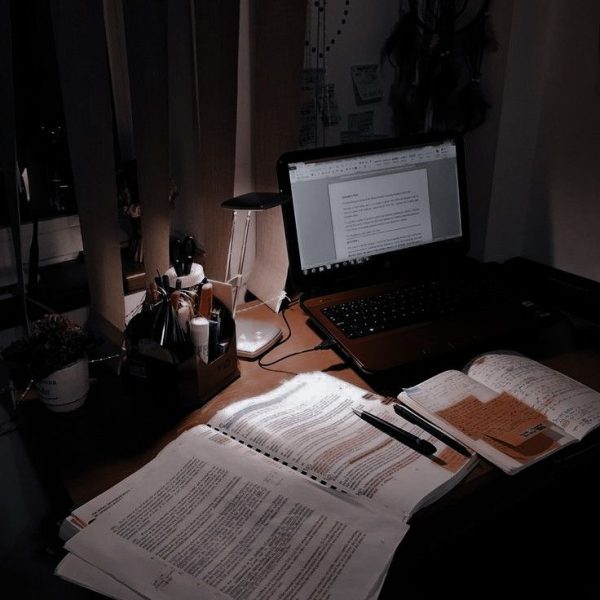A Senior’s Thoughts on Each AP Class
May 21, 2021
I’m no stranger to AP classes. Over the past four years of high school, I’ve taken (some would say against my better judgment) twelve of them. Now as a senior on the verge of graduation, I’m ready to give you my honest opinion on each one and hopefully, some helpful insight that will help you decide which College Board assessment you want to sell your soul to.
The twelve AP classes I’ve had firsthand experience with are AP European History, AP Psychology, AP Spanish Language and Culture, AP English Language and Composition, AP US History, AP Environmental Science, AP Seminar, AP Art History, AP Calculus AB, AP Government and Politics (US), AP Research, and AP English Literature and Composition.
I haven’t taken a few of the more common classes like AP Biology, AP Statistics, or AP Chemistry, but that’s because I’m… not very intrigued by STEM and tend to lean towards more humanities-based classes. A lot of my friends, however, have taken them and have given me more than enough material to work with to summarize each class.
Before we get into it, this is just a reminder not to take these generalizations too seriously— how much you like each class and how much you learn from it is subjective, and as a whole, AP classes can be very valuable. (Also, I’m still waiting on some AP scores, so if College Board is reading this… please pass me.)
First up, the AP Capstone program:
The two classes I took within this program were the AP Seminar and AP Research classes. It’s a diploma program that teaches you how to create your own research paper on whatever subject you like. It does prepare you for some of the writing-heavy classes in college, and you learn a lot about how to find credible academic resources, how to cite them, and how to write an effective paper analyzing a different aspect of whatever subject you pick. AP Seminar is the class you take your junior year, and it’s where you learn to analyze others’ research papers and learn to recognize the components and perspectives that make up an effective paper. At the end of you the year, you’ll write a paper summarizing a certain topic and do a group presentation. AP Research is the class you take in a senior year, and it’s much more independent. The class itself isn’t hard, but it requires some tedious work on your part. You have to really care about what you’re researching in order to stay motivated, and at the end of the year, you’ll conduct your own study, write up the results, and create a full-length paper to send to College Board. Oh, and you also have to do an individual presentation. I’d recommend this class to those who like reading, learning, and are open to presenting their ideas in front of others.
AP Art History: This class is pretty self-explanatory. You learn about works of art from all over the world ranging from prehistoric times to the 21st century. It’s a really interesting class, although there’s a lot of memorization you need for the AP exam. I’d recommend this class to people with an interest in history or people who are good with memorization. It’s also a nice way to boost your GPA and fulfill your art credit requirement. (But I think I’m obligated to give you a spiel about how you should only take the classes that will make you happy without considering your academic record.)
AP Biology: I’ve heard that this class is largely conceptual. There are a lot of labs you’ll have to write, although I’m not sure if they’re any harder or easier than chemistry labs. I’d recommend this class to anyone who took chemistry in sophomore year and wanted to rip their hair out of their head at the end of each week because of it.
AP Calculus AB: I’m not bad at math, but it’s definitely not my best subject, so I decided to go (somewhat) easy on myself by taking this class senior year. It is still a challenging AP class, but compared to AP Calc BC, you’ll certainly have more time to prepare for the AP exam. The pace of the class is less hectic, and once you get the hang of derivatives and integrals (they’re easier than they sound, I promise.), you’ll do well. There are a few equations to memorize, but otherwise, the best practice comes from just doing the problems and FRQs your teacher gives you. I’d recommend this class to people who don’t love math, but like boosting their GPA. This class is also more conceptual than AP Stats, so I’d take that into consideration.
AP Calculus BC: I flat-out refused to even consider taking this class. I know my limits, and a self-proclaimed “fast-paced” math class is beyond it. This class is essentially AP Calc AB on steroids. If you’re pretty confident in your math skills, I’d definitely take this class. It’s just a few more units to learn and it will help you out in terms of getting college credits out of the way. All my friends are good at math, so I watched them cruise by in this class while I studied my butt off for AP Calc AB. I’ll never understand people who are so good at numbers. I curse Isaac Newton every day for introducing letters to math.
AP Chemistry: This is another class I didn’t take. I was one of the people who took chemistry honors in sophomore year and promptly decided to save my sanity by not taking AP Chem. Once again, all my friends took this class, and beyond writing a lot of labs, there wasn’t a particular complaint that stood out. If you got through chemistry in your sophomore year without wanting to rip your lab notebook in half with rage, this class might be a good option.
AP Computer Science A: From my very limited knowledge, I believe this class to be one of the harder AP subjects. I’m not sure about the class itself, but among my friends, the AP exam was harder than they expected. I have no knowledge of this subject, to begin with, so I don’t think I’m qualified to give my opinion on this class. If you’re the type of person who’d be good at this subject, I’m sure this class has already caught your eye, anyway.
AP Computer Science Principles: Now this is the AP CompSci that my friends raved about. They were very pleased with the workload of the class and said the exam wasn’t too difficult. (This being said, two of them are planning to major in computer/electrical engineering, so their perception of the difficulty might differ just a little.) Once again, I’m sure this is a class that some people just know they want to take right off the bat, depending on your personal interests. I don’t pretend to understand you, but I hope you’re having a good time.
AP English Language and Composition: I love three things: reading, writing, and being right. This class let me do all three. I got to read a lot, write a lot, and prove my point with lots of evidence that I could almost just make up. The essays you learn to write in this class are very formulaic, so independent thought isn’t a huge component. You’re taught which elements to look for, how to write about each of them, and how to make that explanation sound smart. You don’t get a lot of room to be creative in this class, but if reading and writing are your things, go for it. This class is basically a staple of your junior year, and the AP exam isn’t too hard.
AP English Literature and Composition: If you liked the lack of creative control and the formulaic, rigid rubric style of AP Lang, this class will be a total 180 from that vibe. This is a class where you read about poetry, prose, and fantastical things. It’s the stereotypical “The curtains are blue!!! BLUE!!!! What does this mean for the character?? THIS MEANS SADNESS!!!!” trope. Albeit, the class is really fun if you’re into that stuff, and I was. I had a lot of fun in this class, and you find yourself enjoying the books and poems you read more as you delve into the deeper meanings of the text. You get much more creative freedom, and if I’m completely honest, the stuff you read is a lot more interesting than in AP Lang.
AP Environmental Science: I’ll be honest; I took this class because I heard it was the easiest science and I needed to fulfill a science credit. I don’t regret it though. This class is very hands-on. You get to do labs that involve planting seeds, creating compost, blowing bubbles, and raising your own fish. There’s less writing than you’d think, and the workload isn’t too heavy. Whereas AP Bio and AP Chem are a bit more conceptual, APES is rooted in a lot of common sense. You’ll learn things that make you go, “Ohhh, that’s what that is.” I’d recommend this class to people who simply like nature and want to learn about the environment.
AP European History: I chose to take AP Euro solely because I learned about Henry VIII in elementary school and thought the guy was fascinating. But again, I don’t regret taking this class. There’s plenty of fun stories in European history to keep you engaged, although the constant wars do tend to get mixed up sometimes. But especially as you learn about WWI and WW2, there’s so much interesting tidbits you learn that you can use to dominate in Jeopardy. It’s a fun class, and most likely the first class where you learn to write a DBQ.
AP Government and Politics (US): The first semester of taking this class, you don’t learn anything about the government, since you’re learning about economics. But when you get into the government part, you learn a lot about our country’s political process. The second semester will be hectic but useful in life. You learn about important documents like the Bill of Rights and the Constitution. You learn about the amendments and important court cases that established the order of the world you live in. Overall, I’d say everyone should take this class. It’s full of useful information you should know as a citizen.
AP Physics 1: Algebra-Based, AP Physics 2: Algebra-Based, AP Physics C: Electricity and Magnetism, AP Physics C: Mechanics: Just looking at this list gives me a headache, but the friends of mine who took it enjoyed it. It’s basically another math class in your schedule. If you’re interested in STEM or just like math in general, I’d say you should look into taking at least one AP Physics class.
AP Psychology: This class has a reputation for being easy, and I’d say it lives up to that name. The AP Psych exam is notoriously easy, but that’s only if you actually pay attention. The units you learn aren’t difficult to grasp, and common sense is a big part of understanding the concepts of psychology. Do all the work you’re given. (Yes, even the things that seem like busy work.) The vocabulary actually pops up on the exam, and there aren’t any trick questions involved. I recommend this to everyone. It’s a fun class that’s applicable in many different areas.
AP Spanish Language and Culture: I’m not a native Spanish speaker, so I was one of the few students in this class that didn’t speak Spanish at home. Naturally, I spoke up less in class because I was insecure about my pronunciation, but looking back, I should’ve just gone for it. No one really judges you in this class. You just hone the Spanish skills you already have, and any practice you can get speaking and listening will help a lot on the AP exam. I learned to write an essay all in Spanish, and that was really important to me. I also earned the California Seal of Biliteracy through this class, so it was really helpful in regards to familiarizing myself with the language. Pro tip: watch Spanish language soap operas. I watched Cable Girls and Grand Hotel, first in Spanish with English subtitles, then Spanish with Spanish subtitles, then just Spanish with no subtitles. It worked wonders.
AP Spanish Literature and Culture: I didn’t have room to take this class this year, but I would’ve liked to. This class is essentially AP Lit but in Spanish. The caliber of difficulty is any less because it’s in a foreign language. You read a lot of cool poems and stories. I’d recommend taking this class if you’re good at Spanish and you really like foreign languages.
AP Statistics: I haven’t personally taken this class, but my friends have all told me on separate occasions that AP Stats is a combination of an English class and a math class. It reportedly involves fewer numbers and more words than you’d think. If you lean towards language arts and analysis-based classes, I’d recommend taking this class.
AP US History: I think this is the class with the most divided opinions on the level of difficulty. Personally, I thought the class and exam were both pretty doable. There is a LOT of information, and I personally think the time limit on the APUSH exam is really tight, but the class itself is very interesting. You learn a lot, as you’re apt to do in an AP course, and it prepares you for AP Gov if you choose to take it when you’re a senior.
AP World History (Modern): This is the history class all my friends took sophomore year while I was taking AP Euro. They had a good time, even though I still feel the sting of betrayal when they reminisce on AP World. The class material is self-explanatory and compared to AP Euro, there are fewer details but more events to memorize. This class works well together with AP Art History if you’re planning to take that class.
I hope this article was useful in giving you an honest review of each class. Keep in mind that these summaries come from either personal opinion or word-of-mouth. Ultimately, you should make the final decision on what classes you should take without being too influenced by my words because everyone has a different experience with each class. I encourage you to look into the classes that draw your interest and see what the course material entails. Look over past AP exams and see if they’re the right fit for you. No matter what AP classes you take, remember that the most important thing for you is to learn. Have fun choosing your classes, and good luck!





















